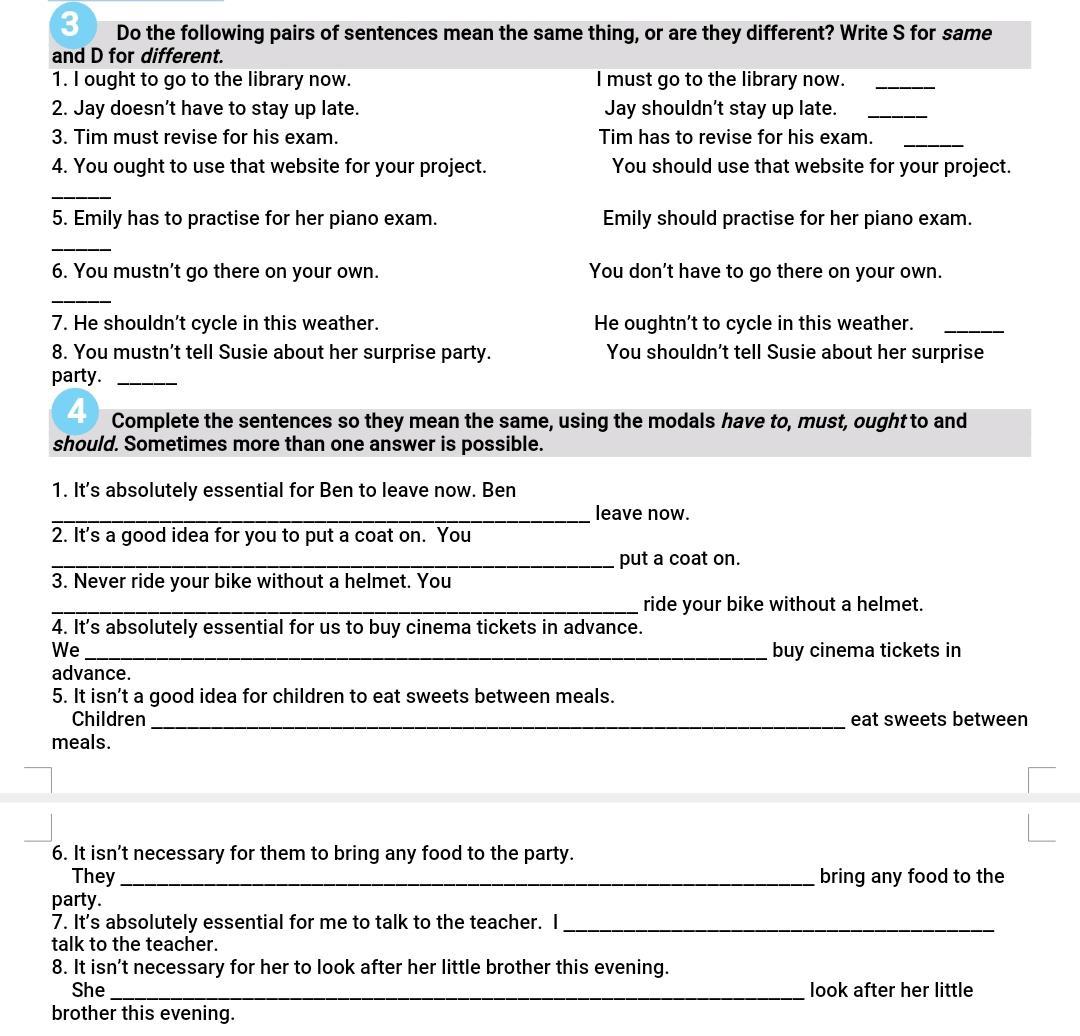Do the following pairs of sentences mean the same thing, or are they different? Write S for same and D for different.
1. I ought to go to the library now. I must go to the library now. _____
2. Jay doesn't have to stay up late.
Jay shouldn't stay up late. _____
3. Tim must revise for his exam.
Tim has to revise for his exam. _____
4. You ought to use that website for your project.
You should use that website for your project. ____
5. Emily has to practise for her piano exam.
Emily should practise for her piano exam. ___
6. You mustn't go there on your own.
You don't have to go there on your own. ____
7. He shouldn't cycle in this weather.
He oughtn't to cycle in this weather. _____
8. You mustn't tell Susie about her surprise party.
You shouldn't tell Susie about her surprise party . ____

Ответы
Ответ:
1. I ought to go to the library now. I must go to the library now. - D
(Note: While both express a sense of obligation, "ought to" suggests a moral obligation or duty, whereas "must" indicates a stronger, more imperative obligation.)
2. Jay doesn't have to stay up late.
Jay shouldn't stay up late. - D
(Note: "Doesn't have to" implies no obligation, while "shouldn't" suggests a recommendation not to do it.)
3. Tim must revise for his exam.
Tim has to revise for his exam. - S
(Note: In this context, "must" and "has to" convey the same meaning of necessity.)
4. You ought to use that website for your project.
You should use that website for your project. - S
(Note: In everyday usage, "ought to" and "should" are often interchangeable.)
5. Emily has to practise for her piano exam.
Emily should practise for her piano exam. - D
(Note: "Has to" implies a necessity, while "should" suggests a recommendation.)
6. You mustn't go there on your own.
You don't have to go there on your own. - D
(Note: "Mustn't" implies prohibition, while "don't have to" suggests lack of necessity.)
7. He shouldn't cycle in this weather.
He oughtn't to cycle in this weather. - S
(Note: "Shouldn't" and "oughtn't to" convey a similar sense of advisability.)
8. You mustn't tell Susie about her surprise party.
You shouldn't tell Susie about her surprise party. - D
(Note: "Mustn't" implies prohibition, while "shouldn't" suggests advisability.)